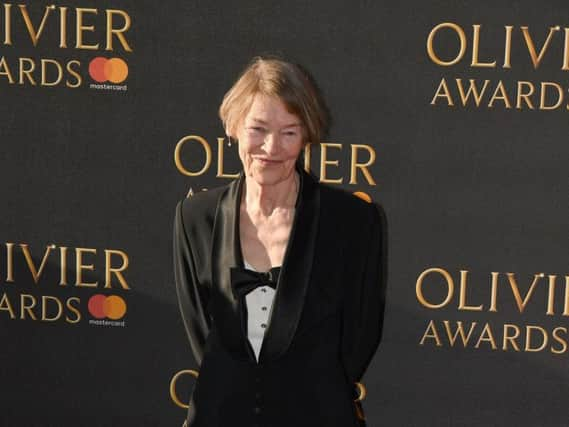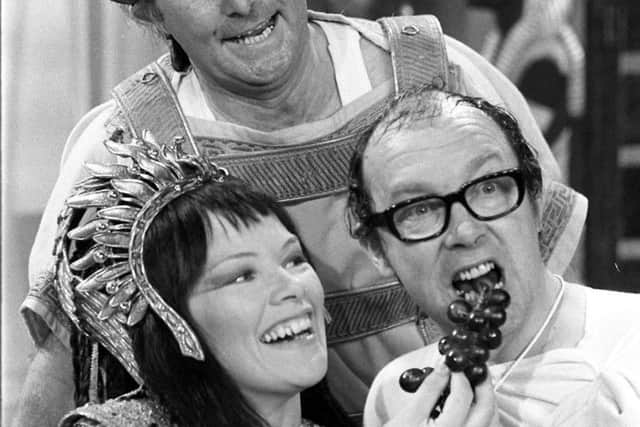Where have all the Glenda Jacksons gone: Anthony Clavane


I was brought to tears last Sunday evening by Glenda Jackson’s performance in the BBC drama Elizabeth is Missing.
A BAFTA is surely nailed on for one of Britain’s greatest actresses.
Advertisement
Hide AdAdvertisement
Hide AdThe 83-year-old’s portrayal of a cantankerous woman’s slide into dementia was a tour de force.


It worked both as a mystery – asking whatever happened to her sister who disappeared 70 years ago – and a meditation on loss.
Her acting master-class prompted some other thoughts about mysterious disappearances.
Whatever happened, for example, to Jackson herself, the greatest talent of her generation?
Advertisement
Hide AdAdvertisement
Hide AdAdoption should be about how much love you can give not the colour of your skin, says Christa AckroydAnd, more generally, whatever happened to working- class actors, who were such a fixture in the great woman’s heyday?
The first mystery was answered patronisingly by several TV reviewers who bemoaned the fact that a so-called left-wing luvvie had been distracted by a career in politics.
Jackson spent almost a quarter-century as a Labour MP, becoming a transport minister in one of Tony Blair’s governments.
Writing in the Daily Mail, Christopher Stevens sneered: “Glenda Jackson’s political delusions drove her in 1992 to throw away a career as an Oscar-winner to become a Labour MP.”
Advertisement
Hide AdAdvertisement
Hide AdThis General Election campaign has, quite rightly, been criticised as too blokey.
Not only in the battle to become prime minister, with Boris – when he could be bothered to turn up – squaring up to Jeremy, but also in the virtual invisibility of front-line female politicians. Loughborough University, which has been monitoring the gendered aspects of the campaign, concluded that women were quoted far less than men in news reports.
Whatever Stevens says, Jackson’s eloquence and tough talking graced Westminster for 23 years – but after she left politics she spent some time in the wilderness before returning to blow away the critics with her King Lear at the Old Vic.
Our Orwellian post-truth political rot set in with Tony Blair and Iraq: Anthony ClavaneLike her fellow working-class actors made good, many of them Northern, she has pointed out that, while she was away, there has been a gentrification of her profession
Advertisement
Hide AdAdvertisement
Hide AdThis was confirmed when a recent London School of Economics survey found that an incredible 73 per cent of actors today come from middle-class backgrounds.
A working-class actor, it appears, is no longer something to be.
To take one prominent example, the over-hyped Netflix series The Crown has privately educated actors playing the roles of the Queen, Prince Philip, Princess Margaret and Prince Charles.
This was blamed by Royal Academy of Dramatic Art director Edward Kemp on the “Downton Abbey effect”; many of the country’s well-heeled stars were deemed to be “righter” for some roles than other less-posh ones.
Advertisement
Hide AdAdvertisement
Hide AdJackson was part of a golden generation of social mobility, a new wave of kitchen-sink realism which introduced the nation – and the world – to the likes of Albert Finney (Saturday Night and Sunday Morning), Rita Tushingham (A Taste of Honey), Tom Courtenay (The Loneliness of the Long Distance Runner) and Richard Harris (This Sporting Life).
Jackson got her big break in that last movie and never looked back, going on to enjoy huge roles in Shakespeare plays, Ken Russell films, Hollywood comedies – and not forgetting, of course, the Morecambe and Wise Christmas Show.
Dealing with dementia is still down the political ladder, says Glenda Jackson ahead of starring role in new drama Elizabeth is MissingBack in the 1960s and 70s, actors from all parts of our society began to break through on both screen and stage.
As we enter the third decade of the 21st century, however, we seem to have gone backwards, with relatively few working-class actors starring in productions – and those who do are earning less than their middle-class equivalents because of a class ceiling.
Advertisement
Hide AdAdvertisement
Hide AdEven Benedict Cumberbatch, who was educated at Harrow, argues that the performing arts should be accessible to a wider group of schoolchildren.
This is not a problem unique to acting.
In the worlds of politics, journalism and pop music, there is now a disproportionate number of men and women from privileged circles.
But it is through the creative industries that we tell stories about ourselves, that we reflect on the changes that have been taking place in society and that we ask ourselves the big questions.
And after watching Elizabeth Is Missing I think we need to ask a question completely ignored during the election:
Where have all the Glenda Jacksons gone?